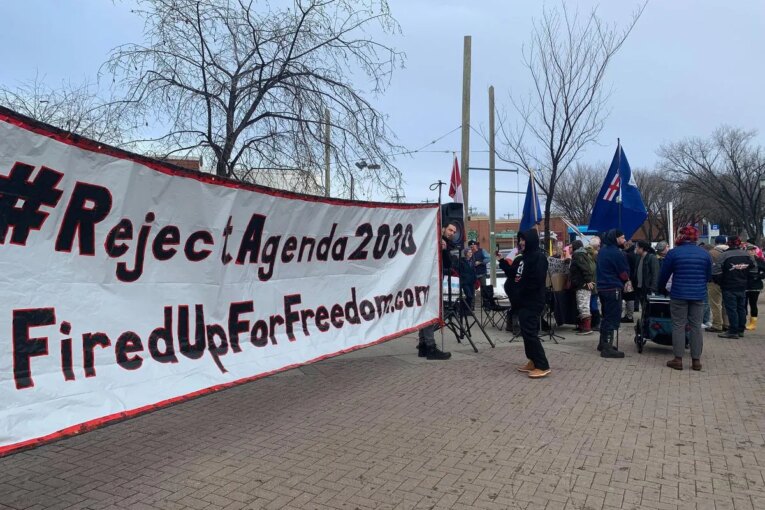
For many urban planners, it felt like a no-brainer: Who wouldn’t want to live closer to their workplace, school or grocery store?
But in the past few months, the 15-minute city — in which, its proponents argue, all of your major services would be a mere 15-minute walk or bike ride from where you live — has gone from under the radar to online controversy.
“It’s this really positive idea of trying to make cities more livable,” says Tim Caulfield, a University of Alberta professor and misinformation expert.
Read the original story here: Inside one man’s battle against the 15-Minute City conspiracy theory
People online have begun to argue that the 15-minute idea is a way to create the infrastructure to lock people into their neighbourhoods.
“You can directly refute their claims,” Caulfield says. “People in Oxford have done that, people in Paris have done it, saying ‘We are not going to restrict people’s movements.’ It does not stop the conspiracy theory.”
The concept was coined in 2016 by a Franco-Columbian professor, Carlos Moreno, who argued that if everyone had more amenities in their neighbourhood, it would be better for both the environment and the people who lived there.
Yes, part of the plan was to reduce reliance on cars because, as Moreno wrote in a paper published in 2021, while cars had led to opportunities in mobility and trade, they’d also had “negative and severe impacts” on our social fabric, including more traffic, air pollution and fewer parks and local businesses.
The idea won awards, and was adopted by cities around the world, most notably, Paris.
Then came the pandemic, which saw many people spending more time in the own neighbourhood than they had before. Suddenly, advocates say, people realized how valuable it would be to know their neighbours and be able to shop and work close to home.
But the pandemic also further chipped away at trust in institutions such as government and media. When a few British cities proposed new walkability plans last fall, these ideas were seized on by people critical of public health restrictions who argued, without evidence, that they were laying the groundwork for future lockdowns.
Despite many city and planning officials attempts to clarify that the 15-minute city wasn’t cloaking anything more nefarious, the conspiracy spread rapidly online.
“There aren’t any boundaries anymore,” says Ahmed Al-Rawi, an associate professor of news, social media and communication at Simon Fraser University.
We track the seed of the idea to how it has become widely and wrongly distorted online.
does not endorse these opinions.
You can read more of the news on source



